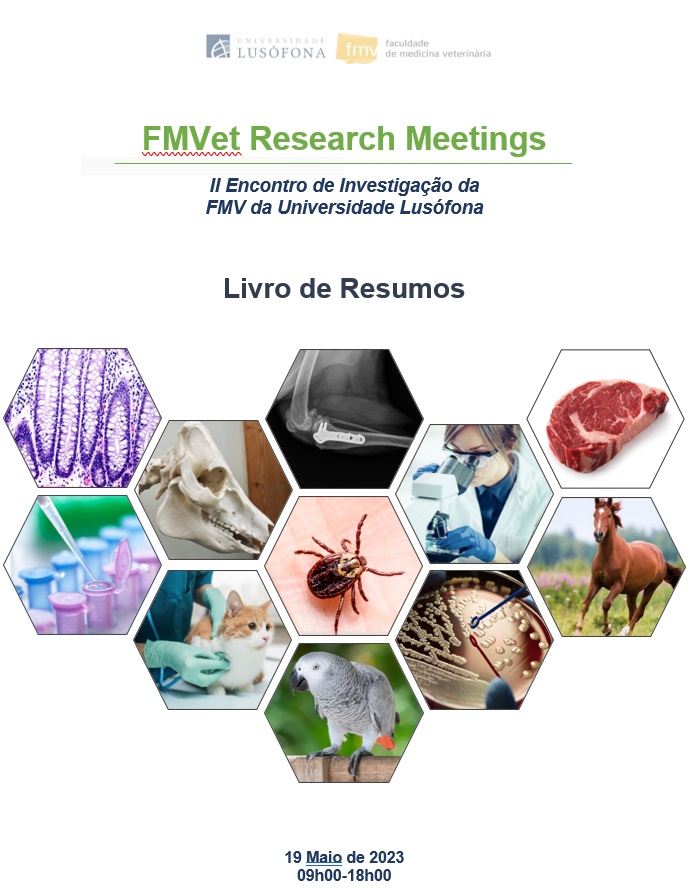Evaluation of aerobic oral flora of healthy ball pythons (Phyton regius)
Resumo
Objectives: Ball pythons are among the most common species commercially bred and kept as exotic pets. Pet reptiles are reported reservoirs of a variety of pathogenic bacteria and a potential source of multidrug-resistant bacteria transmission, representing a serious concern for public health safety. Reptile bacterial diseases can be caused by primary pathogens but are frequently the result of immunocompromising conditions that allow overgrowing of commensal bacteria. Thus, to correctly interpret the significance of bacterial isolates from ill animals, there is the need to first determine the normal flora, that is relatively unknown in ball pythons.
Materials and Methods: Oral swabs were aseptically collected from twenty healthy adult ball pythons and preserved in Amies medium. Samples were supplemented with Brain-heart infusion broth and incubated at 37ºC for 24h. They were then streaked onto selective and chromogenic media plates and again incubated at 37ºC for 24-72h. After Gram staining, bacteria were identified using a VITEK® 2 system.
Results: A total of 57 colonies were isolated, resulting in the identification of 12 species, five Gram-positive (Enterococcus faecium, E. gallinarum, Staphylococcus xylosus, S. sciuri, and Micrococcus luteus) and seven Gram-negative (Aeromonas hydrophila, Salmonella spp., Morganella morganii, Acinetobacter spp., Enterobacter spp., Klebsiella pneumoniae, and Pseudomonas aeruginosa).
Conclusions: This study is a contribute to the establishment of ball pythons’ normal oral flora and identifies potentially pathogenic bacteria. These findings caution the need to further characterize the normal flora in this species. Ongoing studies will provide more data on the normal oral and cloacal bacterial flora of Python regius and evaluate the antibiotic susceptibility of this flora. This will allow us to assess the zoonotic potential of ball pythons by identifying potentially human pathogens and multidrug-resistant bacteria.
Keywords: Oral flora; Aerobic bacteria; Multidrug-resistant bacteria; Python regius.
Funding: 2022/23 Exploratory project grant (PythonFlora), from Faculty of Veterinary Medicine, Lusófona University (FMV-ULusófona).


